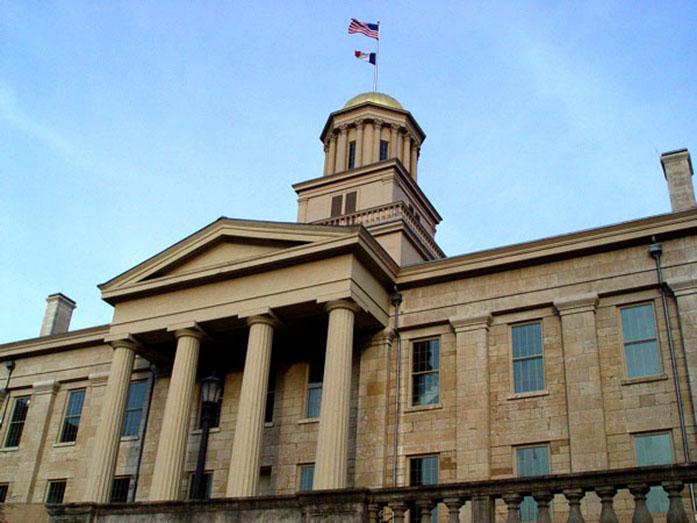The University of Iowa will raise its minimum wage to $9.50 an hour on June 1 alongside a county-wide ordinance in an attempt to keep students working on campus.
Currently, Johnson County’s minimum wage is set to be $9.15 an hour, effective May 1. This pay rate will be raised to $10.10 an hour on Jan. 1, 2017. Currently, the UI has a minimum wage of $8.20, which is possible because it is a federally funded institution. The university is the county’s largest employer.
Von Stange, the UI assistant vice president for Student Life and the senior director of University Housing & Dining, said he believes the wage increase is beneficial; 1,300 students are employed in Housing & Dining, but that is still not enough to fill the demand.
“We started off this year with a shortfall of students that has continued throughout the year,” Stange said. “Students have said they can make more by working off campus. We want to be competitive in the workforce to be able to serve our students better.”
UI spokesman Tom Moore said the university’s focus is to provide support to employees while ensuring the school can perform basic functions.
RELATED: UI to raise minimum wage
“What drives us isn’t where the minimum wage is set, it’s what the prevailing market rate is,” he said. “It’s what people are paid on average for the same or similar work for various positions.”
Currently, the average UI student employee makes $9.66 an hour. Officials said it is unclear whether tuition or housing and dining costs will rise as an effect of a higher minimum wage.
“I don’t buy into the fact that it will raise tuition a large amount,” Johnson County Supervisor Pat Harney said. “There are a minimal number of people that are making more than that [$8.20 an hour]. Somebody has to pay for it, but I’m not sure if it has to come from tuition payments.”
Rod Lehnertz, the UI senior vice president for Finance and Operations, said in a state Board of Regents meeting on Feb. 25 that the UI is still discussing the issue of minimum wage.
“There are multiple considerations to be made and discussions to be had that the shared-governance levels and the cabinet levels will have,” Lehnertz said. “That is not a matter that has been defined, and we appreciate your concerns.”
Stange predicts that room and board fees may go up when the new minimum wage is enacted. He emphasized that hiring more students at a higher wage would still be cheaper than hiring more full-time staff and paying those employees overtime.



